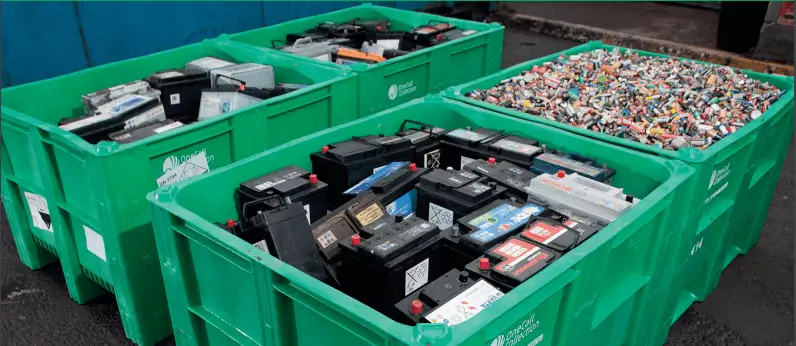The common causes of battery failure
It is a sad fact of life that no battery can last forever. But, whilst all batteries will fail over time, there are things you can do to extend life expectancy.
To extend your battery life, it is important to understand the common causes of their failure. Then you can take steps to prevent this premature failure.
Table of Contents
Temperature
Batteries don’t tend to perform well at either very high or low temperatures.
In the battery, higher temperatures result in a quicker chemical reaction, which accelerates corrosion.
Higher temperatures shorten battery life The optimum temperature of a battery is 25°C; for every 8 degrees C above 25, battery life is halved. So if your battery is older that 3 years and you live in a hot climate, its days are probably numbered. [1]
At high temperatures, there is also a loss of gas and water within the battery. This will raise the internal temperature of the battery itself. This increases the risk of fire and explosion.
At low temperatures. the performance of most batteries drops drastically. At 0°C, capacity drops by 20 percent. And battery Ah plunges to 50% at around -30°C. This is why your battery can sometimes struggle to turn over the engine on cold mornings. However, low temperatures will actually extend the overall battery life. [2]
You should try to control variations in temperature where possible. For example, it might be a good idea to bring batteries into the garage, rather than leaving them outside. This reduces temperature variations.
Controlling temperature, for example by ensuring good ventilation around batteries, is good practice. This ensures ongoing temperature control even in the event of mains power failure.
Low Voltage
Another of the most common causes of battery failure is a battery with a low voltage.
Keeping a battery at too low a voltage causes sulfate crystals to form on the battery plate. These crystals then harden. Even if the correct voltage is then restored, the crystals can remain on the plate. This causes an irreversible loss of battery capacity, contributing to reduced battery life.
In contrast, excess high voltage creates heat within the battery. As mentioned earlier, this leads to plate erosion. The battery will then self-discharge, or lose charge, quicker than usual. You will then have a battery with a reduced capacity or a self-discharge problem.
To prevent this, you should always keep the battery charged to the manufacturer’s specifications. This is generally a charge of 12.9V on a 12-volt battery.
User errors
We are all guilty of using batteries in ways we shouldn’t. But there are some things that are particularly detrimental to battery life expectancy. If you completely run down a battery, it’s vital to recharge the battery within 48 hours. Otherwise, you may damage it.
The internal chemistry of a battery means the electrolyte becomes less acidic. Then, it can convert to pure water. The presence of water in the battery dissolves lead. This dissolves the battery plate which leads to a short-circuit within the battery. This process is known as hydration. Hydration is a risk when you allow your batteries to discharge too often.
Excessive cycling can be particularly damaging to batteries. This is the continued cycling from full charge to discharged and back again. Repeated cycling like this causes damage to the battery plate. This reduces battery capacity and damages battery life expectancy.
Another common user error is the inappropriate interchanging of batteries. Manufacturers are careful when selecting which batteries to power their electrical products. It is important that you exchange batteries correctly. Just because a battery looks similar doesn’t mean it is the same. Use the correct battery for the right product.
Incorrect or inappropriate Storage
There are some things to consider when storing batteries to prevent premature failure. When storing batteries, it is important to ensure the battery is clean. Dust, dirt and corrosion can cause a battery to discharge at a quicker rate than normal. Rapid discharge can damage the battery.
A battery on a full charge shouldn’t need recharging for at least a month if it sits unused. So it is a good idea to charge the battery before storing it, to prevent a full discharge. You should recharge discharged batteries within 24-48 hours to prevent damage.
I have already discussed the importance of temperature on battery life. But it is important to regulate temperature even when storing batteries.
So batteries should be clean, charged and kept in a temperature-controlled environment. This will prolong their lifespan.
Installation problems
Not only can incorrect battery installation lead to failure, but it can also be dangerous. It has the potential to cause fire or explosions.
The most common incorrect ways to install a battery include:
- Mixing up positive and negative terminals.
- Loose connections.
To avoid installation errors follow the manufacturer’s instructions. Ensure the connections are clean and in good working order.
Manufacture errors
Somewhat less likely, but design and manufacturing errors do still occur. It can be worth considering as a possible cause of failure, especially if the batteries are new.
These are often identified and explored at industry conferences and on forums. If you think you have found a battery error linked to the manufacturer, it is best to contact the supplier.
The Verdict on Common Causes of Battery Failure
This list is by no means exhaustive. But it does list the most likely common causes of battery failure. By being aware of the potential causes of failure, you can change how you care for them. And in turn, this prolongs the life of your batteries in the future.


